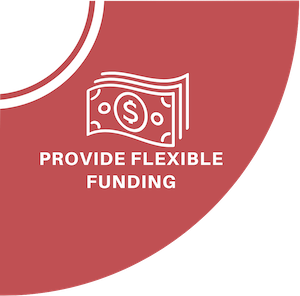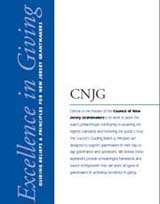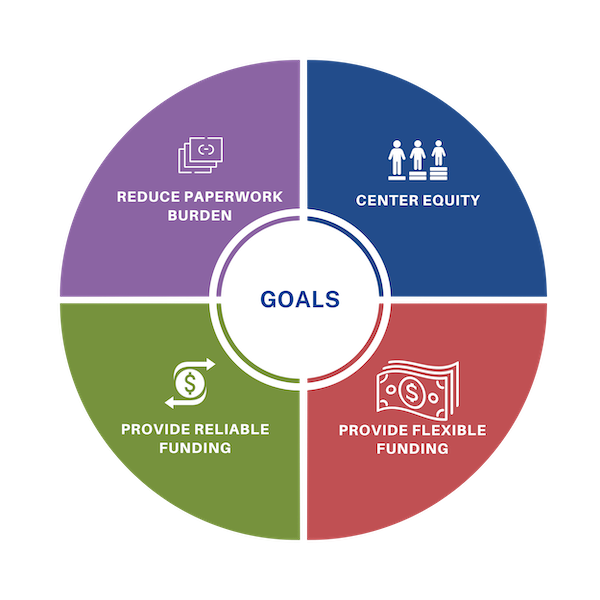Site Search
- resource provided by the Forum Network Knowledgebase.
Search Tip: Search with " " to find exact matches.
Resources gathered from our colleagues at other philanthropy-serving organizations, state nonprofit associations, and city, state, and federal governments.
Philanthropy Serving Organizations Resources
Candid: Funding Summary for Global Philanthropic Response
Center for Disaster Philanthropy
Disaster Philanthropy Playbook
Complex Humanitarian Emergencies: Philanthropy’s Role in Recovery Webinar - Held 2/13/2020
COVID-19 Coronavirus: How Philanthropy Can Respond Webinar - Held 3/5/2020
COVID-19: Past Epidemics and Vulnerability - Lessons for Funders Webinar and Webinar Slides - Held 3/26/2020
COVID-19: Making Effective Rapid Response Grants Webinar and Webinar Slides - Held 4/14/2020
COVID-19: Managing Multiple Disasters Amid the Pandemic Webinar - Held 4/28/2020
Report: Philanthropy and COVID-19 in the First Half of 2020 - May 2021
Report: Philanthropy and COVID-19 Measuring One Year of Giving - March 2021
Report: Philanthropy and COVID-19 Examining Two Years of Giving - May 2022
Center for High Impact Philanthropy: COVID-19 Pandemic: Resources
Council on Foundations
Philanthropy’s Response to Coronavirus Outbreak Resource Page
Sharing Approaches to COVID-19 Community Response Webinar and Webinar Slides - Held 3/12/2020
Funders: Sign the Council on Foundations’ Pledge to act with urgency, loosen restrictions, reduce what you ask of non-profits, contribute, communicate, and listen.
Exponent Philanthropy:
Resources for Lean Funders
Blog: How Lean Funders Are Responding to COVID-19
Funders Together to End Homelessness:
COVID-19 Response and System Redesign: Recommendations for Philanthropy to Support Solutions to End Homelessness
Grantmakers for Effective Organizations: Smarter Grantmaking Practices During—and Beyond—COVID-19
Minnesota Council on Foundations: Coronavirus Webinar and Webinar Slides - Held 3/4/2020
National Center for Family Philanthropy
COVID-19: Response and Recovery Resources
Family Philanthropy’s Response to COVID-19 Webinar - Held 3/27/2020
National Center for Responsive Philanthropy: Local Foundation Funding for Immigrant & Refugee Groups
Philanthropy New York
COVID-19 Updates & Resources
Preparing for COVID-19: Philanthropy’s Response in Times of Crisis Webinar - Held 3/12/2020
Philanthropy Network of Greater Philadelphia: Philanthropy’s Response to the Coronavirus
United Philanthropy Forum
3/12 Letter to Congress - Include Nonprofits in Coronavirus Package
3/18 Letter to Congress - Nonprofit Community COVID-19 Stimulus Letter
State Nonprofit Association Resources
New Jersey Center for Nonprofits: Resources for Non-Profits in Response to the COVID-19 (Coronavirus) Outbreak
1st Rapid Response Survey Report
2nd Rapid Response Survey Report
Washington Nonprofits: Open Letter to Funders
Government Resources
Center for Disease Control and Prevention: Coronavirus Disease 2019 (COVID-19)
City of Newark: News & Updates
Federal Emergency Management Agency: A Guide to the Disaster Declaration Process and Federal Disaster Assistance
NJ Department of Health: Up-to-date Information about the Coronavirus (COVID-19) in New Jersey
State of New Jersey: COVID-19 Information Hub
U.S. House of Representatives: House passes HR 6201: Families First Coronavirus Response Act
World Health Organization: Coronavirus disease (COVID-19) outbreak
Additional Resources
Condon O’Meara McGinty & Donnelly, LLP: Guidance for Private Foundations
As we move beyond the election season and look to 2025, New Jersey’s philanthropic and nonprofit sectors will continue to engage in conversations and partnerships that inspire change and support an inclusive future for all. Ensuring that we are fully prepared for the work ahead demands curiosity, an openness to ongoing learning, a commitment to listening, and building relationships with a range of partners. These are key characteristics and traits of a true leader.
To help you navigate what’s next in a new administration and new Congress, several national partners are offering post-election analysis:
- The National Council of Nonprofits is hosting Impact of the Elections on Nonprofitson Tuesday, November 12 at 4 pm.
- The Council on Foundations is hosting Looking to 2025: Making Sense of the Elections on Thursday, November 14 at 2 pm.
- United Philanthropy Forum is hosting Decision '24 Post-Election Briefing: Debrief + Sector Outlook on Wednesday, November 20 at 12:00 pm.
Leaders are committed to exploring new ideas, building connections, and finding common ground, and ways to come together. The New Jersey Center for Nonprofits’ annual conference, The Road Ahead on Wednesday, December 4 will bring together social sector leaders from across the state for just these purposes. I encourage you to register as soon as possible if you plan on attending. Space is filling up quickly.
Leaders come from all walks of life, and we’re especially fortunate in the philanthropic sector to have an abundance of talented, thoughtful, and caring leaders. After connecting with social sector leaders, and building on your leadership acumen at the Center’s conference, we’re looking forward to seeing you at the CNJG Annual Meeting & Holiday Gathering on December 11. Our theme, Inspiring Change through Leadership: Maximizing Philanthropic Impact, could not be more timely.
As a leader, you know that in these complex times, philanthropic investment and commitment matter more than ever. Each of us, and our individual organizations, bring unique and deeply informed expertise, perspectives, influence, and skills that enrich our collective effort. Together, New Jersey’s philanthropic community will continue to build a space where all voices are heard, and collaboration is valued, so we can move forward to address critical issues in meaningful ways.
Underwriting or sponsoring convenings is another strategy to engage in leadership activities. I hope you will consider supporting the annual meeting of the CNJG membership with a sponsorship or special donation. This event is the one time per year when a significant number of Council members come together in one space, often sowing the very first seeds of collaboration. Learn more about sponsorship opportunities.
A big thank you to our sponsors to date - we couldn't do this without you! Special thanks to Signature Sponsor – Prudential; Contributing Sponsors – Devils Youth Foundation, Robert Wood Johnson Foundation, and Victoria Foundation; Supporting Sponsor – Grunin Foundation, Pincus Family Foundation, and WSFS Bank; and Colleague Sponsor – Horizon Blue Cross Blue Shield of New Jersey.
Wishing us all a safe, restful, and restorative Thanksgiving later this month when the campaign of 2024 becomes a distant memory, but our resolve to champion the causes that matter most to our communities remains steadfast. That’s what leaders do.
Warmly,
Theresa Jacks, President and CEO
Council of New Jersey Grantmakers
Small BIPOC organizations and/or historically excluded/led
organizations have greater access to funding.
Affirmation: We must center the most marginalized, underfunded, and impactful organizations.
BIPOC, grassroots, and/or historically excluded1 leaders are the most proximate to the populations and communities that face the most pressing social issues and should be central to designing solutions and funded; yet they are often overlooked or ignored as real change-makers.
They are underinvested in by major funders and are often left to struggle on their own; and when they are funded, grants are small and often highly restricted.
Some funders have artificially high budget requirements, require collaboration with larger “more sophisticated” organizations, won’t fund fiscally sponsored groups, or emphasize leadership requirements that are increasingly out of date or exclude vital lived experience.
Community organizations are exploring innovative and egalitarian management structures, such as co-directorships, collectives, and collaboratives, that do not resemble the constructs of the past.
Leadership comes in all structures, sizes, and identities; funders must seek to recognize and fund those who are doing effective work and re-evaluate their views of accepted leadership patterns. For BIPOC, grassroots, and/or historically excluded leaders to succeed, we must provide flexible resources and professional development support while they are leading.
Activities
Below are activities your organization can engage in that will advance your equity focus
• Agree as a community of practice to a shared definition of BIPOC, grassroots, and/or historically excluded-led organizations to foster a common frame of reference to help guide this work.
• Create networking and referral opportunities for BIPOC, grassroots, and/or historically excluded leaders to expand their access to funding and opportunities similar to that of larger, mainstream groups.
• Invest in the development and pipeline of BIPOC, grassroots, and/or historically excluded leaders.
• Remove funding barriers for small BIPOC, grassroots, and/or historically excluded organizations that have traditionally been precluded from funding because of budget size, leadership structure, auditing requirements, and similar obstacles.
• Actively partner with BIPOC, grassroots, and historically excluded organizations to make funding decisions on issues closest to their communities.
• Provide significant, multi-year, general operating funding to organizations and movements led by BIPOC, grassroots, and/or historically excluded communities.
Short-term Outcomes
• Progress is tracked into addressing the barriers to funding BIPOC, grassroots, and historically excluded-led organizations in NJ.
• A greater number of BIPOC, grassroots, and/or historically excluded-led organizations are funded than before, by new and existing funders.
• Professional development and capacity building as requested by BIPOC, grassroots, and/or historically excluded leaders is funded.
Long-term Outcomes
• BIPOC, grassroots, and/or historically excluded leaders can access funding and opportunities similar to that of larger, mainstream groups.
• A greater percentage of support to organizations and movements led by BIPOC, grassroots, and historically excluded communities is provided as significant, multi-year, general operating funding. In this context, “significant” can refer to both the quantity, size or percentage of grants awarded by the funder in any given year.
How to Begin Doing Good Better on Equity
Learning opportunities
• Which criteria and practices are creating, perpetuating or exacerbating exclusion of BIPOC, grassroots, and or historically excluded-led organizations?
• For funders that exclude or limit funding to small organizations, why are these barriers in place? What biases or missed opportunities are resulting from these obstacles?
• When funders are actively prioritizing BIPOC, grassroots, and historically excluded -led organizations in their philanthropic partnerships, what definitions, outreach, and partnership strategies are being used? How has this evolved based on lessons learned?
Pre-Work
• Funders should become educated about how traditional ways of identifying grantees and other criteria often excludes BIPOC, grassroots, and/or historically excluded-led organizations.
• Actively seek and share ways to center, identify, fund, and partner with applicants or community-based partners to create solutions in all efforts.
• Identify forums or protocols for introductions, dialogue, and relationship-building between funding community and BIPOC, grassroots and/or historically excluded-led organizations to pave the way for ongoing or stronger partnerships.
General Operating Support or General Project Support
Affirmation: Funds with the least restrictions are the most valuable
Nonprofits maintain and strengthen their organizations when their funds are unrestricted. Data shows flexible and reliable funding increases impact when nonprofit leaders have control over how funds flow to meet the needs of their constituents and internal operations, as demonstrated during the pandemic when funders released previously restricted funding. General operating support (GOS) funding signals trust in our partners and can open more honest dialogue about meeting the mutual goals of the funder and nonprofit. Funders who make project or program grants should trust the organization and provide flexible funding within a specific program.
Activities
• Over the short term, funders aim to shift their GOS activity by 30%. (30% more grants shift from program to GOS, or from fully restricted to negotiated GOS.)
• Provide grants as unrestricted organizational general operating support. The long-term ideal is for most, if not all, grants to be 100% GOS, unless a funder is legally precluded from doing otherwise.
• For project/program grants, 100% of the grant awarded is unrestricted (negotiated GOS), applying mission-based and mutually negotiated outcomes.
• Nonprofits articulate their organizational vision, strategies and intended outcomes to funders; funders understand the models of their grantee partners and learn from them how the grantee partner's work will lead to change.
• Trust nonprofit partners to know how to best apply their funding.
• Create a shared understanding of the meaning and importance of full-cost budgeting and real-cost funding.
Short-term Outcomes
• 70% of funders are shifting some of their distribution to making general operating support grants.
• 100% of program/project grants are designated unrestricted.
Long-term Outcomes
• 100% of all grants are made without restrictions, unless limited by covenant or donor wishes in the case of community foundations.
• All nonprofits can clearly articulate their vision, strategies, outcomes, and business models to funders; and funders understand them and trust them to know how best to use their funds.
How to Begin Doing Good Better on Flexibility Learning Opportunities
• Why aren’t some funders planning to award GOS or negotiate GOS?
• Ask funders: If you participated in CNJG’s 2022 funder survey and indicated that you planned to initiate GOS, have you done so? • Why are some grants restricted?
• What would it take for funders to change?
Pre-Work
• Seek and share learning opportunities for funders, prioritizing education of foundation boards, to address the barriers to awarding GOS and understand how restricted funding undermines financial sustainability.
• For funders who already regularly provide GOS funding, educate/advocate for others to do the same.
• Learn how GOS/negotiated GOS strengthens grantee partners and the multiple ways they can use and evaluate GOS. Actively seek insights from nonprofits to reinforce the message about GOS in their funding partnerships.
• As an incremental step for funders that are not receptive to GOS, provide education about negotiated general programming support (flexible funding within a mutually agreed-upon program area, as opposed to organization-wide GOS).
• Share promising practices on evaluation of GOS and negotiated GO
I can’t believe October began last weekend. I honestly don’t know where the time goes. Before you know it, the new year will be here.
Before that, I’m looking forward to our annual gathering of members – the CNJG 2023 Annual Meeting & Holiday Gathering.
On Thursday, December 14, over 150 Council members and special guests will gather at the Crowne Plaza Hotel in Edison to celebrate the holiday season, welcome new CNJG members, convene a brief business meeting to elect new trustees, feature a dynamic discussion related to the vital work of philanthropy, and provide an excellent opportunity to connect with your colleagues and friends – both old and new.
This year’s overall theme is Philanthropic Collaboratives: Driving Impact and Opportunity.
Together we’ll explore the collaborative process, surface opportunities and challenges, and uncover how to create sustainable partnerships for lasting impact. We’re thrilled to have FSG lead the morning workshop, Tools for Funder Collaboration. The morning workshop will share real life examples of how funders have actively engaged in collaborative efforts, used data for continuous learning, and ensured momentum and buy-in among partners.
Thank you to the Signature Programs Committee, led by co-chairs Christine Healey, President of the Healey Education Foundation, and Atiya Weiss, Executive Director of the Burke Foundation, for their commitment to bring this important topic to CNJG members. The 2023 - 2025 Strategic Plan uplifts collaborations as a way to create more value for member-organizations and the social sector, and catalyze other partnerships in support of all our communities.
The Annual Meeting is the one time per year when many CNJG members come together in one place, at one time, to convene, connect, and celebrate together. And as the “annual meeting of members,” I invite you to consider sponsorship of the event. Even if you’ve never sponsored this gathering before, this is an excellent opportunity to support our work, while also increasing visibility for your own organization and philanthropic efforts. We have a number of outstanding sponsorship opportunities for this event - all outlined here.
We hope you’ll consider supporting the Annual Meeting this year with a sponsorship.
Please call me at (609) 414-7110 extension 805, or email me if you need more information or require an online application to secure your sponsorship. We can also customize a sponsorship package for you.
Thank you to our sponsors to date – we could not do this without you: Signature Sponsor – Prudential, and Contributing Sponsors - Robert Wood Johnson Foundation and Devils Youth Foundation.
We look forward to hearing from you and seeing you at the CNJG Annual Meeting & Holiday Gathering. In the meantime, happy fall.
With all good wishes,
Theresa Jacks, President and CEO
Council of New Jersey Grantmakers
In 2004, a group of foundations came together to create a funder collaborative in support of Freedom to Marry’s state-by-state strategy to win marriage equality. Over the following 11 years, this unique collaborative and its funding partners invested a total of $153 million to support a wide range of activities across the country to change hearts and minds on a massive scale — and ultimately to deliver a historic win for equality and love.
A new case study and video tell the untold, behind-the-scenes story of this funder collaborative — how its members worked with movement leaders to develop a strategy for winning, how they persevered in their support despite enormous setbacks, and how they invested in the opinion research, state-by-state grassroots action and litigation that pushed marriage over the finish line from coast to coast. As the Civil Marriage Collaborative closes its doors in 2015, the case study and video also draw lessons from this historic victory for foundations supporting other social justice causes.
In 2003, with member support, CNJG commissioned a report on the impact a potential conversion of Horizon Blue Cross Blue Shield to a for-profit might have on access to health care in New Jersey. Research from the Center for State Health Policy (CSHP) at Rutgers University, provided details about the law governing such conversions in New Jersey and the experience of other states with conversions. The report identified questions raised in other states when such conversions occur, especially about the valuation of assets, the impact on low-income families, and the operation of the philanthropic foundations that have been established as stewards of the assets generated by the conversions. CNJG’s purpose was to seek answers to critical questions relevant to the availability of healthcare coverage for New Jersey’s citizens and to discuss models of best practice for healthcare conversion foundations across the United States.
We are pleased to share Strengthening Philanthropy in Newark - Report to the Field 2013 – 2014 from the Office of the Newark Philanthropic Liaison. First established in 2007, the Liaison office represents one of the nation’s first formal partnerships between a city and the philanthropic community. The initiative began as a partnership between the Council of New Jersey Grantmakers in collaboration with then Mayor Cory A. Booker. We are proud this unique partnership continues with Mayor Ras Baraka and his new administration.
The report highlights a number of public-private partnerships guided by Liaison Jeremy Johnson. More than $50 million have been aligned and leveraged from public and philanthropic resources, supporting initiatives ranging from education to healthy homes to workforce development. The Office of the Newark Philanthropic Liaison is supported by: Bank of America, The Foundation for Newark’s Future, Geraldine R. Dodge Foundation, The Nicholson Foundation, The MCJ Amelior Foundation, The Prudential Foundation, Schumann Foundation for New Jersey, Turrell Fund, and Victoria Foundation.
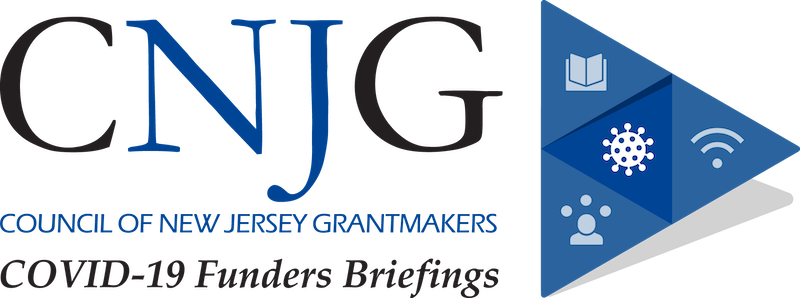
CNJG hosts regular briefings where funders hear from government officials, disaster recovery and health experts, nonprofit leaders, funders, and other stakeholders dealing with the COVID-19 pandemic. The briefings provide an opportunity to share how colleagues are changing grantmaking practices for rapid response, learn about new policies and government actions, and connect with local leaders who work with people whose financial, physical, and mental health suffers due to COVID-19. Series I topics included food insecurity, mapping response funding, racial health disparities, federal and state policy, and updates from New Jersey response funds and Rapid Response Surveys, completed in partnership with the Center for Non-Profits in March, April, and July 2020.
Excellence in Giving
In 2005, CNJG adopted Guiding Beliefs & Principles to offer a thoughtful source of direction and inspiration to help guide our state’s philanthropic sector into the future. CNJG first launched its Excellence in Giving initiative in 2007 with the goal is to provide grantmakers the practical tools necessary to ensure best practice in their operations and grantmaking.
The first booklet, Guiding Beliefs & Principles for New Jersey Grantmakers includes a wealth of insights and tips related to board governance, legal compliance, grantee communications, fiscal responsibility, public disclosure, and many other key areas of foundation governance and operations. It contains wisdom provided by leaders of all types of giving organizations within the CNJG’s membership, and is intended to serve as a practical resource to assist New Jersey foundations in their grantmaking. CNJG’s board is in the process of updating these beliefs and principles in 2023/2024. For more information on the updating process, please contact Theresa Jacks.
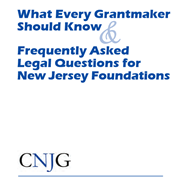 In 2010 CNJG released a second, comprehensive resource to help the state’s philanthropic community understand their ethical, legal, and fiduciary requirements and obligations - What Every Grantmaker Should Know and Frequently Asked Legal Questions. These two booklets are key publications in CNJG’s Excellence In Giving Series. While the Guiding Beliefs & Principles is available publically, members will need to log into access the legal guide for download.
In 2010 CNJG released a second, comprehensive resource to help the state’s philanthropic community understand their ethical, legal, and fiduciary requirements and obligations - What Every Grantmaker Should Know and Frequently Asked Legal Questions. These two booklets are key publications in CNJG’s Excellence In Giving Series. While the Guiding Beliefs & Principles is available publically, members will need to log into access the legal guide for download.
Members can request additional copies of the booklets mentioned on this page by contacting Theresa Jacks.
This weekly conference call series welcomed New Jersey-based grantmakers along with national funders and provided an opportunity for grantmakers to hear from a wide range of experts in the field of disaster philanthropy. This series started on November 5, 2012, one week after Sandy struck New Jersey, and continued through March 25, 2013. The written summaries of each recording are listed below.
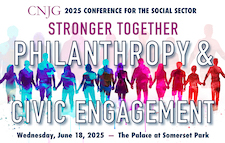
Date: Wednesday, June 18
Time: 8:00 a.m. to 4:00 p.m.
Location
The Palace at Somerset Park
333 Davidson Ave, Somerset, NJ
CNJG’s 2025 Conference for the Social Sector—Stronger Together: Philanthropy and Civic Engagement, features recognized thought leaders, national and regional experts, and community leaders for a full day of connection, shared exploration, thoughtful discussion, and side-by-side learning with philanthropic and nonprofit colleagues.
This year's conference will examine how funders and nonprofits can work together to address and increase civic engagement, focusing on several key areas, including advocacy, local media, participatory budgeting, guaranteed income, public-private partnerships, the arts, and youth education through the lens of civic participation.
Civic engagement is about more than voting or elections. As our colleagues at Philanthropy for Active Civic Engagement (PACE) define it:
“Civic engagement is the process of helping people be active participants in building and strengthening their communities, whether defined as a place or a shared identity or interest. It’s a spectrum of ways people can participate in self-governance, from interactions with government to voluntary associations, and everything in between.”
The opportunity for local communities to convene, learn together, and form partnerships can lead to meaningful action and increased public participation. Let’s explore how philanthropy can impact the social sector by buttressing these connections.
CNJG represents over 130 of NJ’s leading philanthropic organizations – foundations, corporations, and donors. Each year, we present a large-format meeting to include nonprofit partners to discuss big picture topics fostering learning and dialogue between funders and nonprofits.
| Agenda | |
| 8:00 - 9:00 am |
Registration/Breakfast/Networking/Resource Marketplace |
| 9:00 - 10:00 am | |
| 10:00 - 10:15 am |
Networking & Resource Marketplace |
| 10:15 - 11:30 am |
Morning Sessions: The Future of Civic Engagement |
| 11:30 - 11:45 am |
Networking & Resource Marketplace |
| 11:45 - 1:30 pm | |
| 1:30 - 1:45 pm |
Networking & Resource Marketplace |
| 1:45 - 3:00 pm |
Afternoon Sessions: Mobilizing New Jersey |
| 3:00 - 4:00 pm |
Ice Cream Reception/Networking/Resource Marketplace |
Conference Photos

Deepening Philanthropic and Nonprofit Partnerships in New Jersey
Doing Good Better, a partnership of the Council for New Jersey Grantmakers and the New Jersey Center for Nonprofits, is a community of funders and nonprofits taking action against the power imbalances and racial inequities in philanthropy, nonprofits and government. Accessible, equitable, and mutually accountable relationships are primary and indisputable building blocks for a stronger society and thriving communities. Our goal is to shift the culture of the New Jersey philanthropic and nonprofit ecosystem by encouraging funders, nonprofits, and government to create shared power rooted in collaboration, mutual trust, and respect.
Doing Good Better Goals: A Framework for Change
The Doing Good Better Steering Committee encourages funders to focus on and advocate for four changes that can make an immediate difference in addressing power dynamics between nonprofits and funders and maximizing nonprofit impact.
Why now?
For many years, but particularly in the context of the COVID-19 pandemic, natural disasters, and the heightened outcry for racial equity and social justice, funders have been urged to embrace more flexibility and transparency in their grantmaking. Practices such as general operating support, simplified application and reporting procedures, multi-year funding and others have been shown to level the power imbalance, advance greater equity, strengthen partnerships between funders and their nonprofit partners, and thereby improve community impact.
Many grantmakers temporarily embraced flexible practices in the wake of Superstorm Sandy and during the height of the pandemic, and these structural changes empowered nonprofits to become more resilient and have a greater impact in their communities. But while some funders have retained the flexible practices, others have reinstated previous restrictions.
In New Jersey and across the country, there is a renewed urgency to NOT return to business as usual. It’s long past time.
Doing Good Better invites all of us to reflect on how power is distributed in our partnerships, learn from our peers, and make adjustments that position all community partners for transformative, equitable change in New Jersey.
How?
Guided and informed by 50+ advisors from New Jersey who represent a broad range of perspectives from nonprofits, philanthropy, and beyond, we are approaching this work through the lens of systems change – the recognition that transformative change can only occur after power structures have been addressed collectively. Specifically, Doing Good Better encourages funders to consider the power dynamics that underpin their policies, practices, and resource flows. To do this, we provide resources and a space for dialogue centered on changes in key practices and culture shifts.
Quick practice changes you can make now.
The road to systems change begins with changing practices that impede nonprofits’ pursuit of their missions, and implement practices that demonstrate respect for and trust in the expertise and experience of nonprofits and the communities they serve. Several key practices have consistently been shown to be particularly effective. Many of these have been requested by nonprofits for quite some time, and are reflected in the principles of Trust-Based Philanthropy and Community-Centric Fundraising, among others. Here are a few practice changes you can make now:
Type of Funding
● Give multiyear and unrestricted funding, especially for grantee partners with which you’ve had long term relationships.
Access to Funding
● Create alternative processes for organizations too small to submit audits to reduce barriers to obtaining grants.
● Set aside funding pools for BIPOC-led organizations that may not have access to traditional funding sources.
Simplifying the Process
● Simplify and streamline application and reporting processes.
● Eliminate annual requests for organizational information that does not change from year to year.
Learning
● Engage with the community through participatory grantmaking that aligns with the community’s goals.
● Open dialogues with nonprofits by soliciting and acting on feedback
How do we know?
We’ve asked the experts: nonprofits, foundations, and community members who are working directly in our community as well as peers from across the country who are eliminating power imbalances in their own communities.
● Feedback from over 50+ Advisors
● The Council of New Jersey Grantmakers survey
● The Center for New Jersey Nonprofit’s survey
● The Trust Based Philanthropy Project
● The Community-Centric Fundraising movement
● Thought leaders and advocates throughout the nonprofit community
● Case studies from across the US
This weekly conference call series welcomed New Jersey-based grantmakers along with national funders and provided an opportunity for grantmakers to hear from a wide range of experts in the field of disaster philanthropy. Series 1 started on November 5, 2012, one week after Sandy struck New Jersey, and continued through March 25, 2013. Series 2 started on September 9, 2013 and concluded on November 4, 2013. The written compendium of the recordings is listed below.
Collaboration. Partnership. Alliance. Joint effort. Collective.
Whatever we call it - every one of us has been involved in a collaboration of some kind at some point in our lives. At the same time, both simple and complex, the definition of collaboration – the act of working together with other people or organizations to create or achieve something – means we collaborate nearly every day. To be human is to collaborate.
We’ll explore the constructs of more complex collaborations at the CNJG 2023 Annual Meeting & Holiday Gathering on December 14. Following the pre-meeting workshop, Tools for Funder Collaboration, the business meeting to elect new trustees, and the networking luncheon, the fireside chat, Sustainable, Effective, and Equitable Collaboration – A Conversation that Centers Community, will feature Nidhi Sahni, Partner and Head of US Advisory Group, Bridgespan, and Lucy Vandenberg, Executive Director, the Schumann Fund for New Jersey, to explore what makes a successful collaboration, and how collaboration strengthens the impact of funding initiatives across sectors.
The Annual Meeting is the place where the seeds of collaboration are often first sown. Consider the collaborations you’re involved with now or have engaged in previously – where did those ideas first take shape – possibly in a conversation with another funder that, like you, wanted to have impact on a particular issue, solve an entrenched problem, or explore an untried solution.
Council members collaborate in a number of ways with other funders and nonprofit organizations. As a prelude to the Annual Meeting, on November 16, we’ll learn about the Morris County Funders Group and their Mental Health First Aid collaborative partnership. This first initiative of the funders group aims to address the growing mental health crisis in young people and adults.
Over 25 years ago, CNJG began its life as a collaboration – New Jersey foundations gathered together to form a collective to learn together, build relationships, and share resources. We have several resources to inform your collaborative journey as part of the Annual Meeting resource tab.
One of our core activities has always been to share resources. As we witness the conflict and heartbreaking devastation and sadness in Israel and Gaza following the October 7 attacks, some key resources to inform your work are available through the Center for Disaster Philanthropy, the go-to resource for disaster-related giving, and the Council on Foundations. You can connect quickly with your CNJG colleagues to share additional resources via our 25 listserves, including the Disaster Response Funders listserve. Contact Director of Member Services Craig Weinrich to join listserves that interest you.
Another joint effort highlighting what happens when funders come together, this time to share their own data, is the 2023 New Jersey Philanthropy Benefits & Salary Summary Report. Thank you to CNJG members that completed the surveys to inform this report.
As part of your registration for the Annual Meeting & Holiday Gathering, you’re asked if you have or are participating in a collaboration. I think it’s safe to say the answer is “YES!” for everyone. Maybe the question we should ask as we speed toward 2024, is where are the additional opportunities for collaborations? How can I build on past or current collaborations? Who else should I invite in?
I’m looking forward to seeing you at the Annual Meeting & Holiday Gathering to further explore these ideas and questions.
Thank you to our Annual Meeting sponsors, Prudential, Victoria Foundation, Robert Wood Johnson Foundation, Devils Youth Foundation, Horizon Blue Cross Blue Shield of New Jersey and the Princeton Area Community Foundation. There’s still time – I hope you will consider sponsorship for this special event – our annual “meeting of members.”
In Partnership,
Theresa Jacks, President and CEO
Council of New Jersey Grantmakers
Directors & Officers liability insurance provides financial protection for a foundation and its directors, officers, employees, and volunteers in the event of a lawsuit. CNJG offers its members the D&O liability insurance program provided through Aon Association Services, underwritten by The Hartford and endorsed by the United Philanthropy Forum. A discount is available to foundations with current membership with CNJG.
Fiduciary Liability and other coverage is also available to members at a discounted rate. Coverage is available in all states. Brokers can access the Forum’s D&O program through Aon Association Services.
Learn more using the documents below, on the Aon website or by contacting Jason Tharpe, program administrator at Aon Affinity, at 202-429-8561. To obtain the discount, foundations should let Aon know they are a member of CNJG, a member of the United Philanthropy Forum.
United Philanthropy Forum is committed to advancing racial equity in philanthropy. We provide space for our members to connect, learn and share together on how to effectively address racial equity in their work as philanthropy-serving organizations (PSOs), and works to share our members’ learnings with the broader philanthropy field. As part of these efforts, we are pleased to share case stories from our members about their racial equity work.
Case Story
Funders Together to End Homelessness: A Racial Equity Learning Journey
Funders Together to End Homelessness began its racial equity journey in 2016. Its case story explains how the PSO named racial equity in its strategic plan and embarked on a learning journey together with its board, staff, and members to normalize the conversation about structural and historic racism and how it contributes to disparities in the homelessness system. The story also describes how Funders Together created a two-year community of practice, called Foundations for Racial Equity (FRE), that has been a critical part of its journey, and how its codified its racial equity work through the creation of its Commitment to Racial Equity.
Read Funders Together’s Case Story
Listen to Funders Together’s CEO Amanda Misiko Andere talk about her organization’s racial equity journey on an episode of the ForumNation podcast.
Case Story
Southeastern Council of Foundations: An Experiential Racial Equity Journey
In early 2018, the Southeastern Council of Foundations (SECF) along with its board undertook a racial equity learning journey in order to develop an Equity Framework that would describe and define SECF’s character, what it stood for, and what its leaders were willing to fight for. The decision to develop the Equity Framework was the culmination of years of work. SECF’s case story explains how the organization used data to inform the development of its Equity Framework, created an Equity Task Force to lead the effort of developing a Framework, and engaged board, staff and Task Force members in a racial equity learning journey.
Listen to SECF’s President & CEO Janine talk about her organization’s racial equity journey on an episode of the ForumNation podcast.
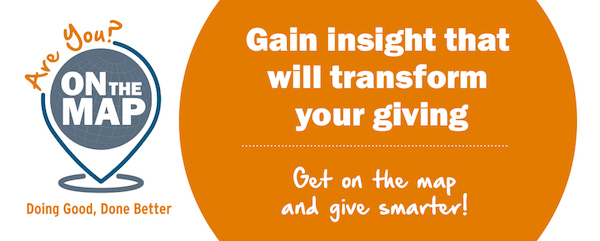
Get on the map and give smarter
Get on the Map is an exciting data-sharing initiative designed to dramatically improve the quality and availability of giving data for our region. Using this tool to put your grantmaking in context will provide valuable insights that can transform your giving.
Knowing how other foundations or corporations are funding in a certain geographic area or with a specific nonprofit can make everyone’s work more effective.
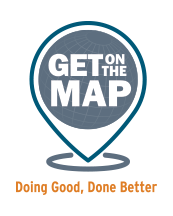 Imagine real-time answers to questions like:
Imagine real-time answers to questions like:
- How are others serving at-risk youth?
- Are organizations in our region receiving enough capacity building support?
- Who else funds economic development in our rural communities?
Through a partnership with Candid (formerly the Foundation Center) and the United Philanthropy Forum, Get on the Map enables CNJG members to see the scope of their grantmaking, find natural funding partners, and gain deeper understanding of New Jersey’s philanthropic landscape.
Watch the short video below to learn how easy it is to Get on the Map!
It starts with sharing your giving data
Your data will power valuable resources for your organization and our region, including access to the CNJG Foundation Funding Map, a special interactive searchable mapping platform, engineered by Candid.
When you share your data, you control your story. No one knows your grantmaking better than you. Tell your story, your way is good for the sector because better information benefits everyone. Join the community of funders sharing their data to ensure the field is acting on the best possible information. Share Now!
Self-Paced Training for Funders on Using Candid
Candid has also launched a new, free self-paced course for funders: Funding Smarter: Using Candid Tools to Inform and Share Your Foundation’s Work. The course is meant to help funders use Candid’s mapping, data, and knowledge tools to better identify funding peers, potential grantee partners, identify funding connections and gaps, and learn from knowledge other funders have already shared. It also highlights the value of sharing data with Candid.
We are pleased to share links to organizations and other resources that assist nonprofit with development, volunteer recruitment, and other key aspects of their work.
New Jersey Center for Nonprofits
The New Jersey Center for Nonprofits is the only umbrella organization for all New Jersey 501(c)(3)s. Since 1982, the Center has provided advocacy, resources, training and information to strengthen non-profits and help them thrive. The Center offers an active list of funding opportunities for NJ-based nonprofits. CNJG is partnering with the New Jersey Center for Nonprofits by sending any and all funding opportunities from our members and other funders to add to this page. Our goal is to make this page one of the first places New Jersey non-profits visit to find funding opportunities.
NJ Division of Consumer Affairs: Charities Registration Section
The CR & I Section administers and enforces the provisions of the Charitable Registration & Investigation Act (CRI Act) which regulates the fund raising activities of most charitable organizations and all professional fund raisers, fund raising counsels, commercial co-ventures and solicitors conducting business within the State of New Jersey.
New Jersey Philanthropy Hub
The New Jersey Philanthropy Hub, developed by Impala and launched in partnership with CNJG and the New Jersey Center for Nonprofits, brings the state’s giving landscape into clear view—empowering funders, nonprofits, and policymakers to strengthen communities, drive innovation, and build a more equitable future for all New Jerseyans. This free, open-access platform provides an unprecedented view of New Jersey’s nonprofit and philanthropic sector. Join us on October 23, 2025 at noon for the launch event of this new, helpful, and exciting tool!
Candid.org
The Foundation Center, now Candid.org, has launched Foundation Directory Online, a website you can use to search the basic profiles and IRS Forms 990-PF of nearly 90,000 grantmakers, giving them access to contact information, fields of interest, financial data, and program priorities. Registration is required. They offer a free version that gives basic information, or one can subscribe for a fee to access more detailed information.
Those seeking funds can also access a paid version of the Foundation Directory Online through Candid’s Funding Information Network access locations. There are several in New Jersey and in neighboring states.
Pro Bono Partnership
Pro Bono Partnership provides business and transactional legal services to nonprofit organizations serving the disadvantaged or enhancing the quality of life in neighborhoods in New York, New Jersey, and Connecticut.
Association of Fundraising Professionals, New Jersey Chapter
The Association of Fundraising Professionals fosters the professional development of fundraising professionals and promotes ethical standards in the fundraising profession. The New Jersey Chapter is an individual member association that advances philanthropy through education, training, and advocacy across the state, basing its programs and services on research, experience and the highest code of ethical principles and standards of professional practice.
Association of Fundraising Professionals, Southern Jersey Chapter
The Association of Fundraising Professionals NJ, Southern Chapter serves Atlantic, Burlington, Camden, Cape May, Cumberland, Gloucester, Ocean and Salem counties in the southern-most region of the state.
Grant Professionals Association
The Grant Professionals Association helps grant professionals seek to continually improve their professional knowledge and skills in grant research, proposal development, and post-award grant management. They provide a consultant directory to find assistance with preparing grant applications and proposals.
NJ Chapter of Grants Professional Association
The statewide chapter of the Grants Professional Association..
Resources
The Philanthropic Infrastructure landscape
The Council on Foundations put together this list of philanthropy-supporting organizations (PSOs) that engage philanthropy, share resources, increase trust in philanthropy, and improve our local communities.
Exploring the Social Sector Infrastructure
The Urban Institute created this microsite that details the infrastructure organizations that support the social sector.
Common Grant Application and Report Form
More than a decade ago, the Council of New Jersey Grantmakers and Philanthropy New York spearheaded a project to develop common application and report forms to help streamline the grant application process and ease the often time-consuming grant preparation process.
The Common Grant Application is a four-page form, which includes directions for use, a sample cover sheet, and the common grant proposal guidelines. The separate Common Report Form is accepted by many funders and helps to streamline the grant-app/report process. Please check with funders to see if they accept this documentation before sending.
If you know of other resources that you feel would be valuable to feature in this area, contact Theresa Jacks.


